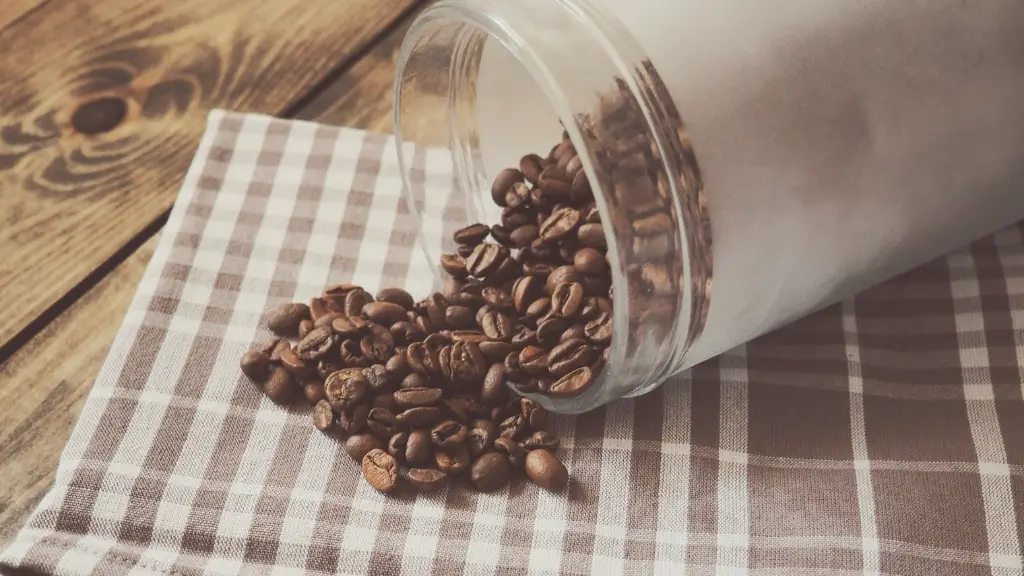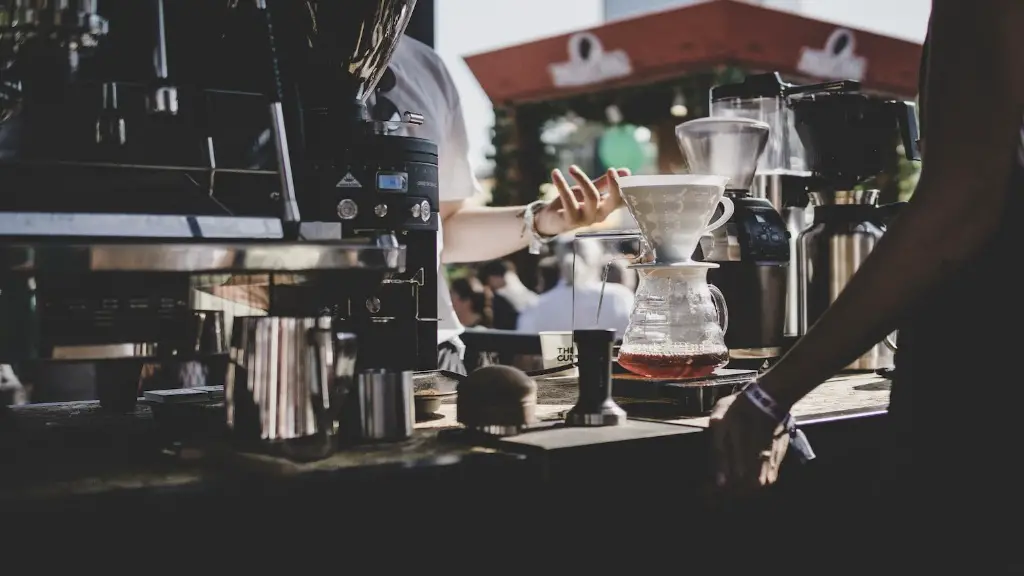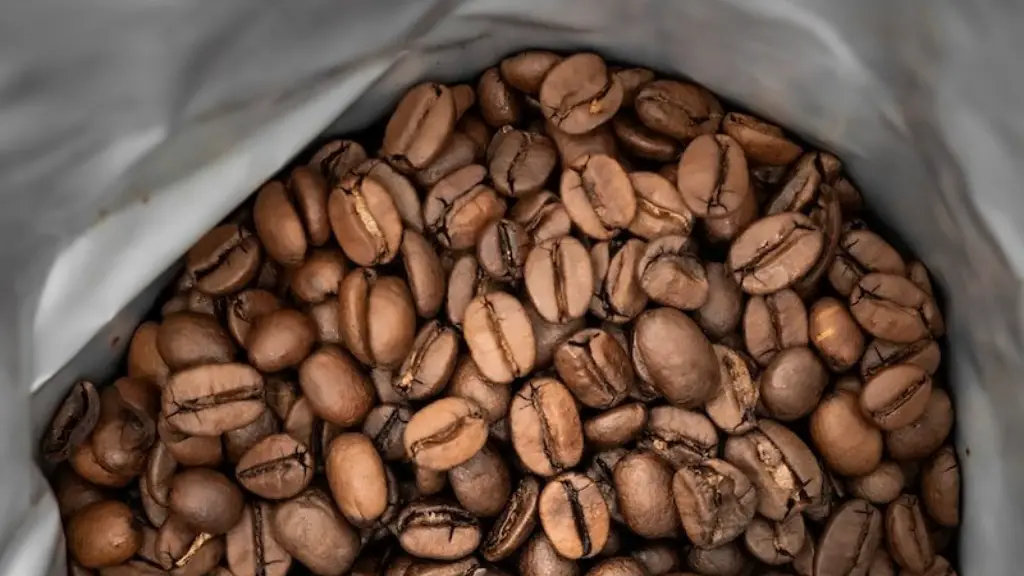It is no secret that coffee is one of the most popular drinks in the world. According to recent estimates, over 2.25 billion cups of coffee are consumed each day. It has become so popular that it is considered an essential part of many people’s daily routines and lifestyles. Coffee lovers everywhere can agree on one thing: nothing quite compares to the taste of a freshly brewed cup of java. But coffee and a keto diet? Are they compatible? This article seeks to provide an answer to this very question.
The ketogenic diet is a low-carb, high-fat diet that shares many similarities with the Atkins and low-carb diets. The goal of the diet is to induce ketosis, which is a natural metabolic state in which the body produces ketones for energy. It is believed that following a ketogenic diet can help with weight loss, diabetes, and even epilepsy. But what about coffee? Can coffee be enjoyed on a keto diet?
The short answer to this question is yes, coffee can be enjoyed on a keto diet; however, it must be done in moderation. Coffee itself does not contain any carbohydrates, so it does not affect ketosis. This is good news for coffee lovers! However, cream and sugar are often added to coffee, and these do contain carbohydrates so it is advised to limit them if following a keto diet. If possible, it is best to opt for heavy cream or coconut milk, which are both low in carbs and contain healthy fats, rather than creamers and syrups, which are high in carbs.
In addition to reducing the amount of cream and sugar added to coffee, it is also important to limit the amount of coffee consumed on a keto diet. Too much caffeine can have a detrimental effect on the body and can cause an increase in cortisol levels, which can lead to weight gain. Additionally, caffeine can also lead to insomnia and anxiety, making it difficult to get a good night’s sleep. Therefore, it is essential to limit the amount of coffee consumed each day.
It is clear that coffee can be enjoyed on a ketogenic diet, but must be done in moderation. If you are following a keto diet and are a coffee lover, then the best thing to do is limit the amount of cream and sugar added to the coffee, as well as the amount of coffee consumed each day. As long as you do this, then you should be able to enjoy a few cups of coffee each day without adversely affecting your ketogenic diet.
What are the alternative beverages that are keto friendly?
The good news is that there are plenty of other beverages that can be enjoyed on a ketogenic diet. Some of the most popular include water, tea, sparkling water, green tea, black coffee, and bone broth. Water should be the beverage of choice as it is essential for staying hydrated and maintaining a healthy lifestyle. Tea is also a great option, especially oolong and green tea, which have powerful antioxidants and can help boost metabolism. Sparkling water and unsweetened ice tea are also popular options as they are sugar-free and contain no calories.
Bone broth is another popular choice as it is rich in protein and minerals. It can help to keep the body hydrated and also contains amino acids, which help to support joint health and brain health. Furthermore, it is also an important source of electrolytes, which can be lost when following a ketogenic diet. Finally, plain black coffee is a great option for those who are looking to get a boost of energy without compromising on the ketogenic diet.
What will happen if one consume too much coffee on a keto diet?
If someone is consuming too much coffee while on a ketogenic diet, then they might experience some negative side effects. As mentioned earlier, too much caffeine can lead to an increase in cortisol levels, which can lead to weight gain. Additionally, it can also cause insomnia and anxiety, making it difficult to get a good night’s sleep. Finally, an overdose of caffeine can also lead to headaches, nausea, and even dizziness.
Therefore, it is important to be mindful of how much coffee is consumed while on a ketogenic diet. It is advised to limit consumption to two cups per day, and to make sure that cream and sugar are kept to a minimum. Additionally, the type of coffee should also be taken into consideration. It is best to opt for darker roast coffees, as they have lower acidity levels and less caffeine than light roasts.
What are the benefits and risks of drinking coffee on a keto diet?
There are both benefits and risks associated with drinking coffee on a ketogenic diet. On the one hand, coffee can help to boost energy levels, improve focus, and help burn fat. It can also help to reduce cravings, making it easier to stay in ketosis. On the other hand, coffee can also interfere with sleep, increase the risk of anxiety, and raise cortisol levels.
Therefore, it is important to consider both the benefits and risks when it comes to drinking coffee on a ketogenic diet. It is advised to opt for black coffee and to limit the intake to two cups per day. Additionally, cream and sugar should be kept to a minimum in order to prevent an increase in calories and carbohydrates. Finally, those with a sensitivity to caffeine should limit their intake or opt for decaffeinated coffee.
What are the nutritional values of coffee?
Coffee is a drink that is consumed by people around the world and is a popular accompaniment to many meals. Despite its popularity, few people know the nutritional value of coffee. To put it simply, coffee is low in calories and carbs, meaning it will not affect ketosis.
Coffee also contains antioxidants, which can help to reduce inflammation, protect against free radicals, and boost the immune system. Furthermore, it also contains caffeine, which is a stimulant. Caffeine can help to increase alertness, focus, and energy levels, making it a popular choice for those looking to get a quick boost of energy.
What about other spices and additives?
Spices and additives can also be added to coffee to give it a unique flavor. Some of the most commonly used spices include cinnamon, nutmeg, and vanilla. These spices can not only give the coffee a unique flavor, but can also provide some nutritional benefits. Cinnamon, for example, can help to regulate blood sugar levels, while nutmeg can help to reduce inflammation. However, it is important to note that many of these spices and additives can contain carbohydrates, so it is best to limit their use if following a ketogenic diet.
In conclusion, it is indeed possible to enjoy a cup of coffee while following a ketogenic diet. However, it is important to limit cream and sugar and reduce the amount of caffeine consumed each day. Additionally, it is important to be aware of the nutritional value of coffee, as well as the potential risks of consuming too much caffeine. Finally, spices and other additives can be used to give the coffee a unique flavor, but it is important to note that many of these can contain carbohydrates, so it is best to limit their use if following a ketogenic diet.
How does drinking coffee on a keto diet compare to other beverages?
When comparing coffee to other beverages, it is important to consider the nutritional value and potential health benefits. Coffee is low in calories and carbs and contains antioxidants, which can help to reduce inflammation and protect against free radicals. Additionally, it contains caffeine, which is a stimulant, making it a popular choice for those looking for a quick boost of energy. Finally, it is also important to note that coffee can provide the body with electrolytes, which can be lost while following a keto diet.
In comparison, other beverages may have slightly different nutritional values and health benefits. Water is essential for staying hydrated and supporting overall health. Tea is a great source of antioxidants and can help boost metabolism. Sparkling water and unsweetened ice tea are both sugar-free and contain no calories, making them great options for those on a keto diet. Bone broth is a great source of protein, minerals, and electrolytes, which can all be beneficial for those on a keto diet.
Ultimately, the best beverage for a ketogenic diet will come down to personal preference and lifestyle. Everyone is different and what works best for one person may be different for another. It is important to consider not just the nutritional value but also the potential health benefits when choosing a beverage.
What are the effects of consuming coffee on energy levels?
Many people turn to coffee for an energy boost, but is it really beneficial for individuals on a ketogenic diet? The short answer is yes, coffee can help boost energy levels, but it must be done in moderation. Too much caffeine can lead to an increase in cortisol levels, weight gain, and insomnia, and should therefore be avoided.
Coffee can help to provide a burst of energy and focus, and can even help to burn fat. It can also help to reduce cravings, making it easier for individuals to stay in ketosis. Furthermore, coffee contains essential vitamins and minerals, such as magnesium and vitamin B-6, which can help to support energy levels.
Overall, it is clear that coffee can help boost energy levels but must be done in moderation. It is best to limit consumption to two cups per day and avoid adding too much cream and sugar. Additionally, dark roast coffees are the best choice, as they have lower acidity levels and less caffeine than light roasts. Finally, those who are sensitive to caffeine should opt for decaffeinated coffee.
How can one’s overall health be affected by drinking coffee on a keto diet?
In addition to providing a burst of energy, there are other potential health benefits associated with drinking coffee. Coffee is rich in antioxidants, which can help to reduce inflammation and protect against free radicals. It can also help to boost the immune system and reduce the risk of certain illnesses, such as Parkinson’s and Alzheimer’s disease.
Coffee can also help to improve cognitive function, focus, and alertness. It can also help to regulate hormones, such as cortisol and insulin, which can help to improve metabolic health. Finally, it can also help to improve digestion and reduce the risk of certain diseases, such as ulcers, irritable bowel syndrome, and heartburn.
It is clear that coffee can provide some health benefits; however, it is important to note that these benefits must be weighed against the risks. As mentioned earlier, too much caffeine can have a detrimental effect on the body and should, therefore, be avoided. Additionally, it is important to note that coffee can interfere with sleep, so it is best to avoid drinking coffee in the evening or late at night.





